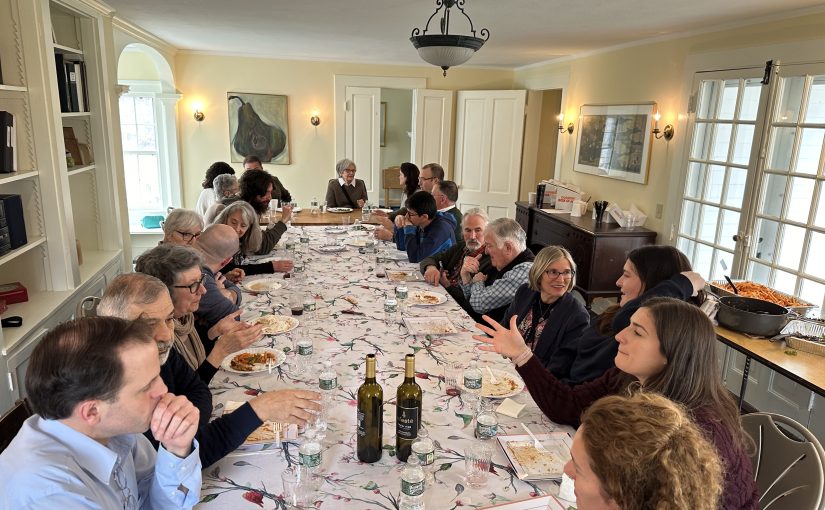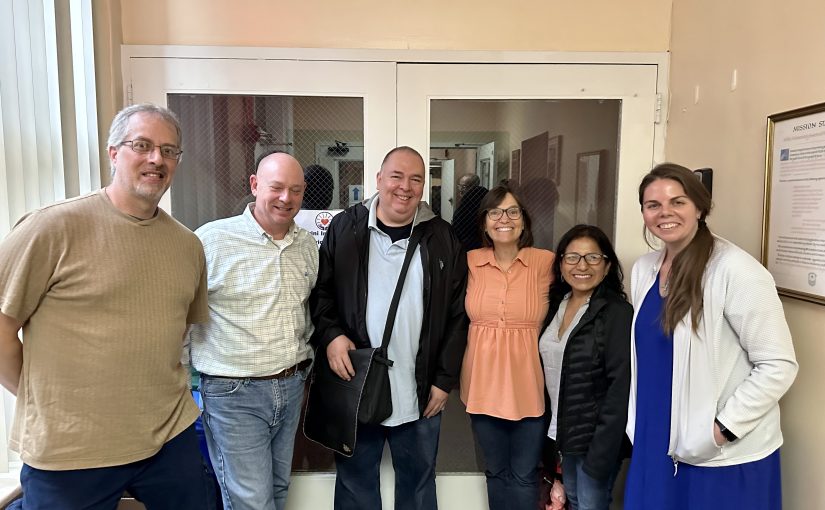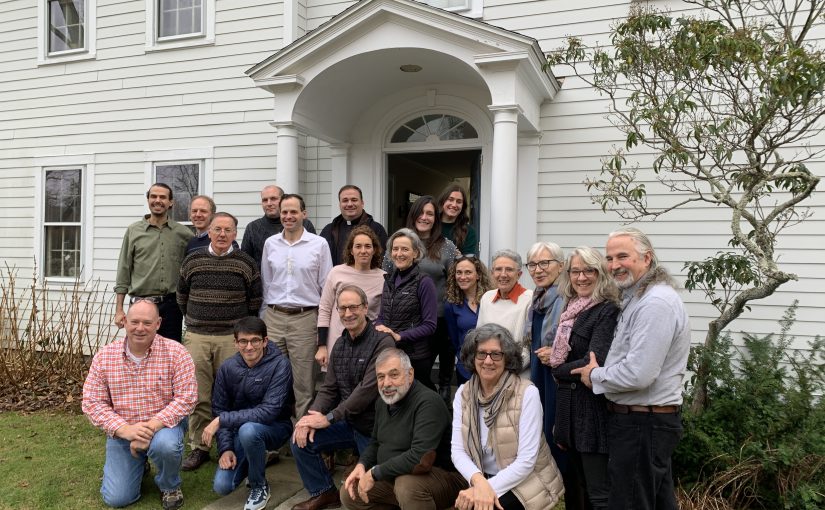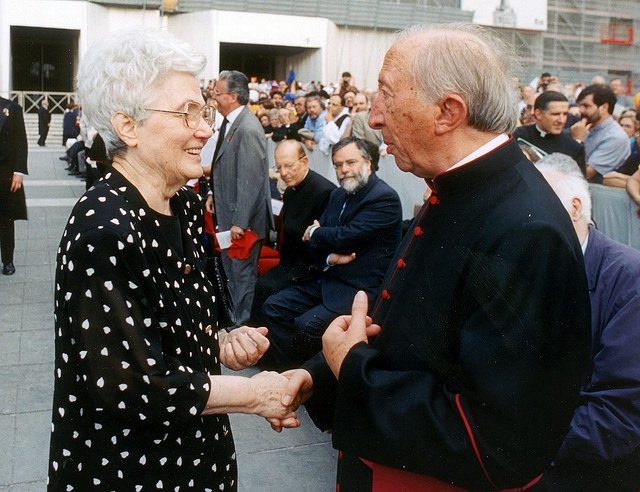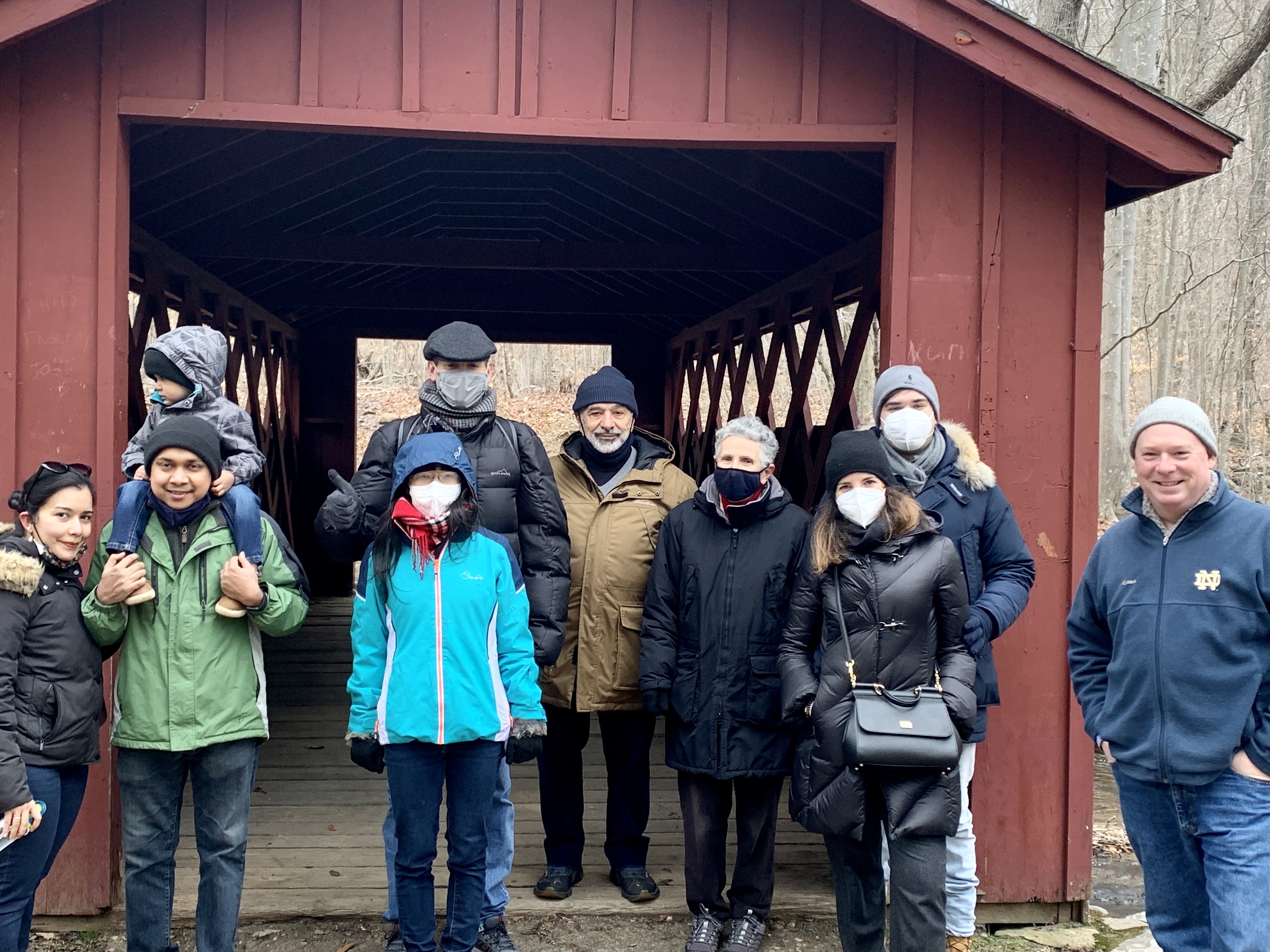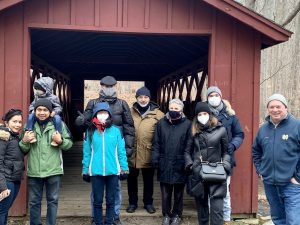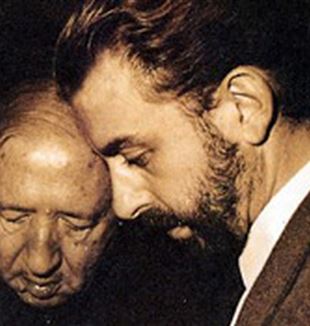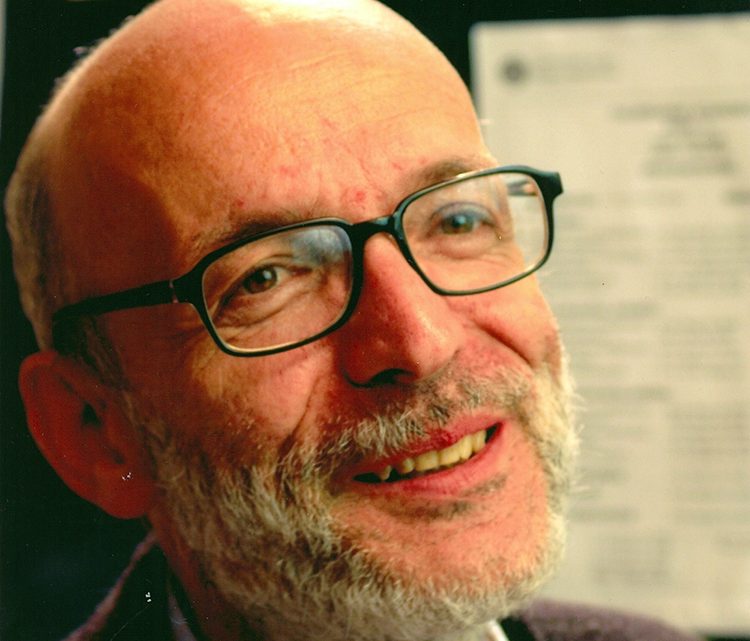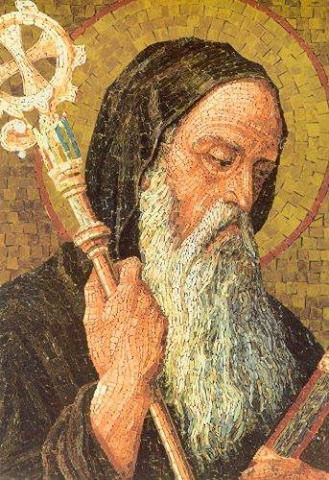Today the privilege of spending time with friends who share with me the journey of faith. Lent is a particular time to step back to be rejuvenated in the joyfulness of loving. It seems to me that Lent and for that matter, the whole of Christian life, is a journey in loving joyfully. The cynics among us are critical of this line of thinking because it sounds wishy-washy. On the contrary, it is serious path to deepen not only the relationship with the Lord, but also living with others.
What is faith? How is faith understood? Today’s retreat director, Fr. Luis, made a key point: Faith is a relationship with an alive presence—that of Jesus. It is a dynamic of Faith; we know deeply that faith is a journey. So, I can say with conviction that my relationship with Jesus Christ (and the Church and community) 5 years ago is vastly different from what it is today.
What faith is not is one that is not a creed that I can have or lose. A barometer or something that can be bought or sold. Faith is not a thing one can lose. We often hear that people lose their faith, or that faith has dried up, or that faith has been ruined by another (think of those victims of abuse). What is true that one can experience a lessening of the awareness of the life of faith informing our person and how we live. Faith is, rather, a way of seeing, a way of knowing, and a way of living. Once Jesus Christ has entered my life he is always with me. The covenant will never be altered; no matter what our behavior may or may not be. We belong to Jesus who never walks away. Belonging is what revealed in Scripture and in tradition; it is way of being in relation even if we don’t feel like being in relationship with the Lord.
The journey of faith is shown in the Scriptures in powerful ways. Think of how the apostles first met the Lord. Think of the Samaritan woman at the well. Think of the parable of the mustard seed which contains hope because it contains the germ of life.
What’s the journey about? Some notes.
1. Faith as loving recognition. (Generating Traces, p. 22)
Recognition is more than intellectual assent. Recognizing moves me. It’s a loving approach. It comes as a surprise, unscripted. There’s a correspondence or a convergence with the heart. This correspondence happens with Jesus in seeing & being with him. It’s a loving recognition, it’s an affection.
Faith isn’t about rules. The emphasis on a rule based Christian faith follows a false premise. First one needs to be converted and conversion is less about following the “rules” than it is entering into friendship with the God who is certain. Otherwise it’s empty and pretentious. We try to give people what they don’t need by insisting on a rule based faith. This is certainly not what is revealed in Scripture. A conversation about canon law, the moral life, theological data is another conversation. At this moment I know that the God I know and love is a God who makes exceptions for me; he is the God of the perpetual second chance (think of sacrament of Confession and of the Eucharist).
Love can be manifested things like, Be kind to yourself.
I know I have a desire to be loved. Having a claim on the love of others is a true desire and event. We who have encountered Christ have written the religious sense. What we often hear, however, is “Don’t get involved.” Not quite the Christian way. This person has the same desire to be loved but they put a brake on receiving love.
2. Lenten is an Experience as a surprise. To be human to exist with recognition of an absence to be fulfilled. Prayer, fasting, works of charity are tools for the Lord to fill the absence that these tools create. We need something that will fulfill us.
St Paul’s letter to the Colossians tells us that Christ is the image of the invisible God.
The infinite love of God shapes our life because our humanity is taken seriously. God gives me someone to love and to be loved by that person. This is how God reveals himself. But more importantly we come to ask what it means to be open to the Other.
Prayer allows Christ to enter our lives. Allow him to grow in us.
Now we come to getting a handle on what the liturgical season of lent is for the Catholic. So many preachers and teachers make Lent out to be drudgery: a 40-day period difficult time of renunciation and penance. Don’t get me wrong. Lent is a serious time of changing the ugliness of sin in my experience by Grace into something new. But it is not my work. Lent is the time in which we ask Christ to work in me.
Lent’s work is keeping memory active.
Lent as a time of memory. Our personal experience of salvation. Memory keeps us focused in the essential movements of Grace. It is how recognize, how we remember how God actually works here and now. How do you recall daily the events of God you in your life? How do you remember? What are the steps? Silence. Daily Silence makes sense of this life. It helps me to be present to the moment and not to be frivolous with that which is in front of me. Silence allows me to account for my heart. Silence brings awareness to life. It also allows Christ to enter into my heart.
3. Faith as missionary event.
If we allow Christ into our life, that we met him, we by nature to share the grace with others. We thus become a light in the world.
Witness to unity. Not to see how good they are but how Christ is operating in the person, in the world. To live communion.
John 17: as you sent me, I send them, that we are one.
